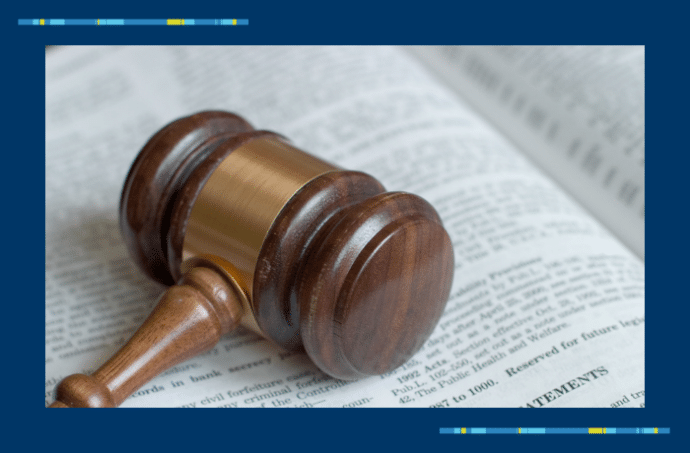
This year, an amendment will be made to Federal Rule of Evidence (F.R.E.) 702 to clarify admissibility requirements for expert opinion.
Expert testimony is often crucial for explaining and contextualizing many key issues at trial relating to liability and damages that require technical or specialized knowledge. Before an expert’s opinion may be admitted at trial, the court must determine that the expert’s opinion, as well as the basis and methods used by the expert to reach it, are both relevant and reliable under F.R.E. 702.
An amendment to Rule 702 is set to take effect later this year and seeks to clarify the standard for admissibility of an expert’s opinion testimony. According to the Advisory Committee, the amendment to Rule 702 serves to clarify and emphasize two issues: (1) that the proponent of an expert opinion must demonstrate the proffered testimony meets the Rule’s admissibility requirements by the preponderance of the evidence (that it more likely than not meets the requirements), and (2) that the expert’s testimony must remain within the bounds of what can be concluded from the reliable application of the expert’s methodology. [1] Although the amendment does not take effect until December 1, 2023, attorneys should begin incorporating the standard into their own practice when proffering an expert’s opinion and objecting to the opinion of the opposing party’s expert.
As amended, the new Rule will read as follows:
Rule 702. Testimony by Expert Witnesses
A witness who is qualified as an expert by knowledge, skill, experience, training, or education may testify in the form of an opinion or otherwise if the proponent demonstrates to the court that it is more likely than not that:
(a) the expert’s scientific, technical, or other specialized knowledge will help the trier of fact to understand the evidence or to determine a fact in issue;
(b) the testimony is based on sufficient facts or data;
(c) the testimony is the product of reliable principles and methods; and
(d) the expert has reliably applied expert’s opinion reflects a reliable application of the principles and methods to the facts of the case.
The amendment is intended to emphasize the trial court’s gatekeeping function in admitting expert opinions and respond to misstatements of the Rule’s standards for admissibility by many trial courts. Previously, numerous courts had taken a liberal view of the admissibility standard and determined expert testimony was presumed to be admissible and treated the reliability requirements in Rule 702(b) and (d) as questions to the weight of the testimony rather than its admissibility. This improper application meant that the critical questions regarding the sufficiency of the basis for the expert’s opinion were left to the jury rather than assessed by the trial court. The new language in Rule 702 clarifies the application of the preponderance standard for admissibility of evidence as required by Rule 104(a) and empowers the trial court to judge the conclusions reached by the expert and the methodology applied to reach those conclusions. The amendment reaffirms the central holding of Rule 702: the principles and methods used by the expert must not only be reliable, they must be reliably applied.
By reinforcing the trial court’s gatekeeping role, the amendment to Rule 702 will direct trial courts to more closely scrutinize an expert’s proffered testimony before it is presented to the jury. For instance, in McGraw v. Cobra Trucking Inc., the defendants sought to exclude the opinion of the plaintiff’s expert regarding the reasonable costs of his future medical care. 569 F. Supp. 3d 1089 (D. Colo. 2021). In part, the defendants argued the expert’s opinions and methodology were unreliable because he subjectively modified his datasets and search criteria of medical care providers without disclosing the providers he excluded from the analysis or his methods for excluding data from certain providers. Id. at 1096. In denying the defendant’s request to exclude the opinion, the trial court held the criticisms of the data relied on by the expert and his method for choosing the data went to the weight of the opinion rather than its admissibility. Id. at 1101 (holding “to the extent the expert’s facts and data may be inaccurate, incomplete, or otherwise imperfect, those flaws go to the weight to be ascribed to his opinions, and not to their admissibility.”)(internal quotations omitted). Under the new Rule 702, the trial court would have been required to make a finding that more likely than not the facts and data underlying the expert’s opinion were sufficient and the opinion reflected a reliable application of the expert’s method of selecting the data.
Ultimately, the amendment to Rule 702 will help ensure that only expert opinions, and their underlying basis, that are reliable and reliably applied may be presented to the jury.
For more information, contact Ireland Stapleton litigation attorney David Manush at dmanush@irelandstapleton.com or (303) 628-3697.
[1] Comm. on Rules of Prac. of Proc., Agenda, 891–96 (June 7, 2022) [https://www.uscourts.gov/sites/default/files/2022-06_standing_committee_agenda_book_final.pdf].